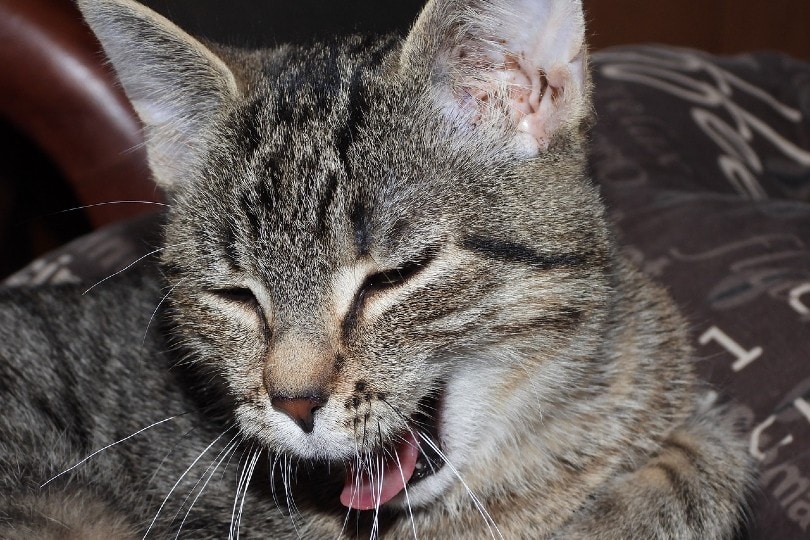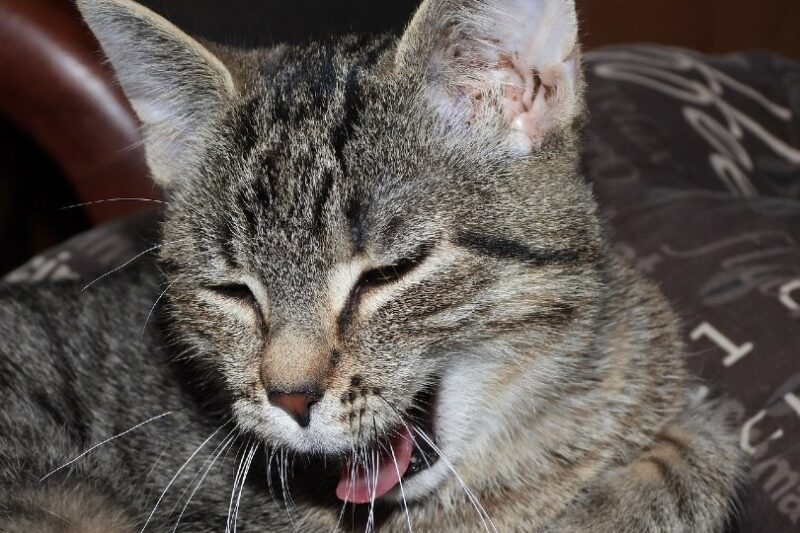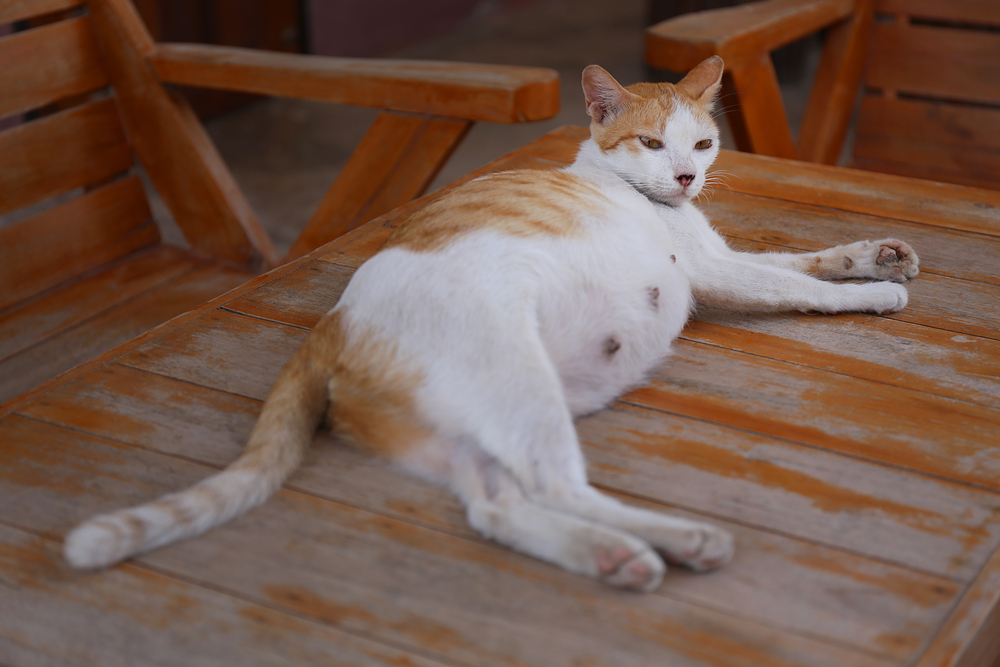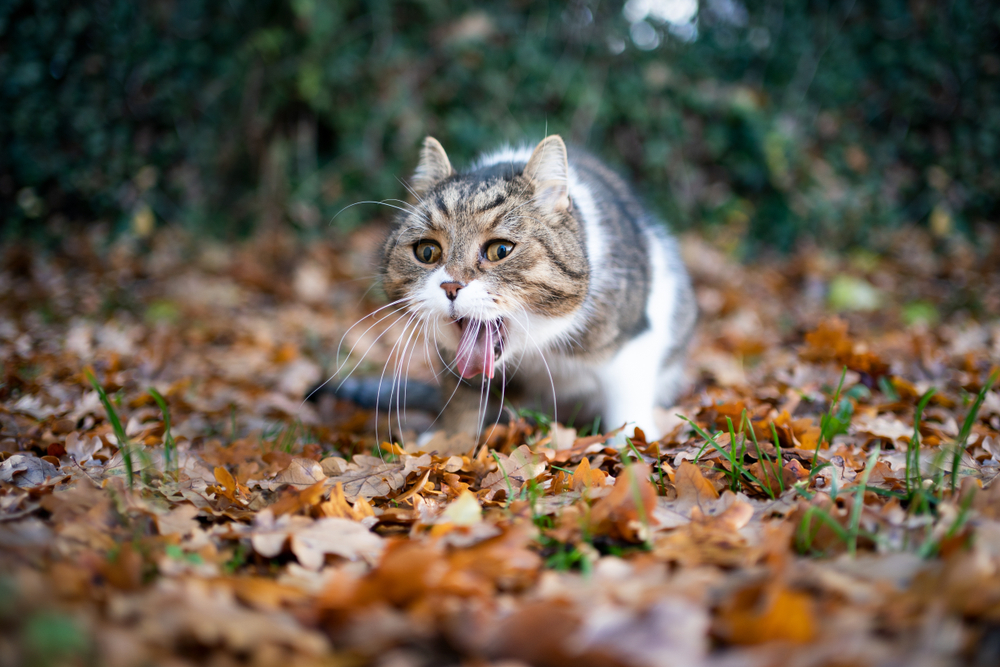Click to Skip Ahead
If you’ve noticed your cat coughing and sneezing, almost like they have a cold, there’s a chance they could have kennel cough. Most pet parents are familiar with the highly infectious kennel cough symptoms affecting dogs, but it can affect cats, too, but it’s very rare.
Like in dogs, cat kennel cough is an upper respiratory infection causing coughing, sneezing, and discharge from the eyes and nose. Keep reading to learn more about cat kennel cough!
Kennel Cough in Cats
“Kennel cough” is the common name for a set of upper respiratory signs commonly seen in dogs. Several viruses and bacteria can cause kennel cough, but in cats, it tends to be caused by a bacteria called Bordetella bronchiseptica, which is related to the bacteria that causes whooping cough in humans.
This bacteria is spread in saliva, nasal secretions, and droplets from infected animals, so it can quickly spread through close contact. While kennel cough is very common in dogs, it is quite rare in cats. It spreads more readily in larger colonies of cats such as multi-cat households and breeding facilities with several cats.
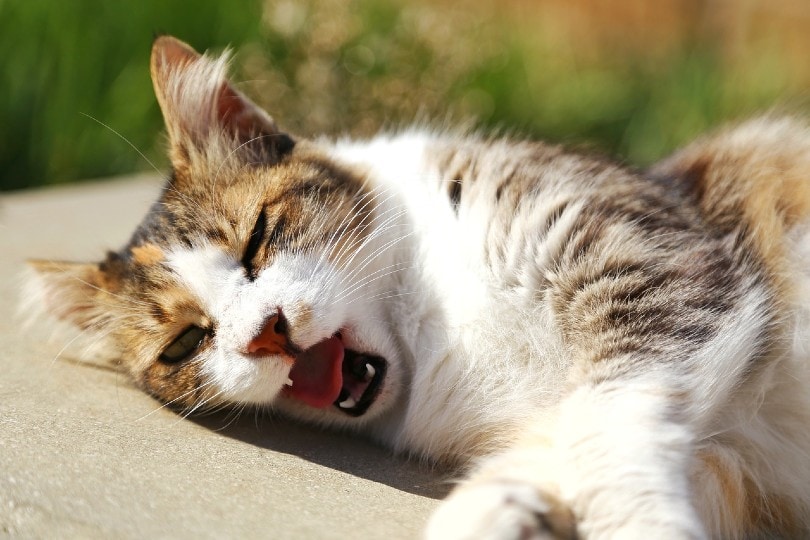
Is Kennel Cough Contagious to Cats?
While coughing is unusual in cats, sneezing and discharge from the eyes and nose are common signs. It would be easy to assume that your cat has kennel cough if you spot these signs, but there are other common infections that can cause it.
Most cat parents are familiar with “cat flu,” which is a common, contagious upper respiratory infection. Cat flu is usually caused by the feline calicivirus or the feline herpes virus and tends to affect very old or young cats or those with underlying health conditions.
The signs of cat flu include sneezing, discharge from the eyes and nose, lethargy, inappetence (loss of appetite), and fever. So, it’s very easy to confuse cat flu and kennel cough! The most reliable way to determine whether your cat is suffering from cat flu or kennel cough is by getting a swab of your cat’s throat at the veterinary clinic and sending it to a lab to identify the bug.
Can Cats Get Kennel Cough?
Cats can catch kennel cough. Although uncommon, the bacteria Bordetella bronchiseptica that causes kennel cough in dogs can also affect cats. Cats usually catch kennel cough from other cats, which is why it is most common in large colonies of cats and multi-cat households, where the bacteria can spread quickly on surfaces such as toys and bowls and through inhaling droplets in sneezes and saliva from infected cats.
Related Read: Can Cats Get Colds? And What Should You Do?
Can a Dog Get Kennel Cough From a Cat?
There is very little evidence to confirm the spread of kennel cough from dogs to cats, and although it is possible, it is unlikely. However, cats can spread kennel cough to dogs.
How to Avoid Kennel Cough Spread to Cats
Kennel cough is a highly contagious infection, so it’s important to prevent it from spreading between animals. If your dog has been diagnosed with kennel cough, and you are concerned about it spreading to your cat, hygiene is one of the most important aspects to consider. Although the spread from dogs to cats is rare, it is always sensible to be cautious.
Preventing your dog and cat from getting too close to one another will help. If your feline and canine companions like to get up close and personal, you should keep them apart since close contact is the most common way for the infection to spread.
Bordetella can live on a surface for up to 2 weeks in the environment, and cleaning any shared bowls or toys is essential, as well as washing bedding.
How to Tell if Your Cat Has Kennel Cough
Kennel cough is an upper respiratory infection, and the signs include mild sneezing, coughing, and discharge from the eyes and nose, which may be clear, yellow, or green.
Usually, these signs only last for 7–10 days, but in a small number of cases, cats become sicker and develop secondary infections such as pneumonia, which can be serious. Signs of pneumonia include fever, lethargy, inappetence, and other upper respiratory signs.
These complications are more common in young or elderly cats and those with underlying health conditions. The signs of kennel cough in cats can be very similar to other upper respiratory infections, such as cat flu. If your cat displays any of these signs, it’s important to get them checked out by a veterinarian. Left untreated, a small number of cats may develop secondary infections such as pneumonia, which could make them very sick.
Kennel cough can be easily diagnosed by taking a swab from your cat’s throat and sending it to the lab for testing. This can help the vet decide on the best course of treatment for your cat.
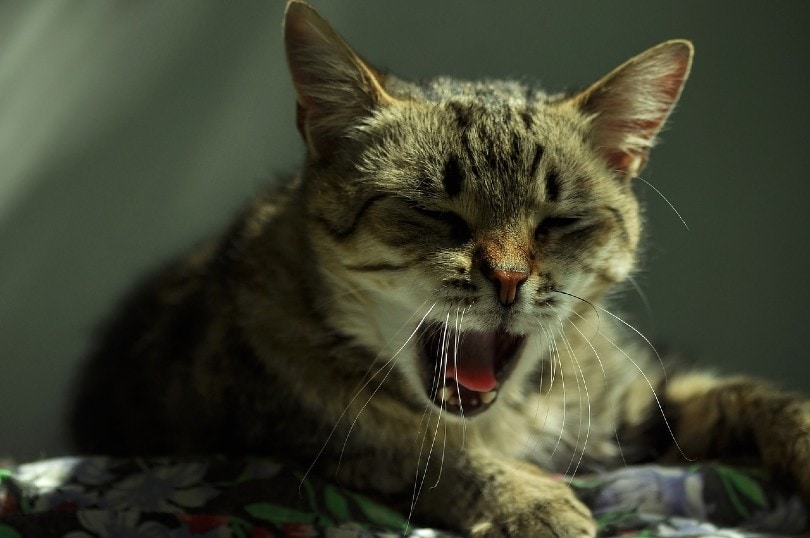
Kennel Cough in Cats Treatment
Treatment for kennel cough in cats usually involves antibiotics since the cause of the infection is bacterial. An antibiotic called doxycycline is most commonly used. However, there is a strong chance that the bacteria will resist some antibiotics. Your veterinarian might want to take a swab from your cat’s throat that can then be cultured in the lab and tested to see which antibiotics are most effective at killing the bacteria.
Your cat will also likely benefit from anti-inflammatory medication, which will help reduce a fever and make your cat feel much better! Some medicines can help clear mucus and congestion, too. Steaming is another way to help clear mucus, and the safest way to do it with cats is by sitting with them in a hot, steamy bathroom.
You must supervise your cat and never leave them unattended in a hot room or near hot water.
How to Treat Kennel Cough in Cats at Home
Cat kennel cough is best treated with medication from your veterinarian, which usually includes antibiotics and anti-inflammatories. It’s really important to get your cat checked over at the vet if they show any signs of kennel cough since they can determine whether it is kennel cough, cat flu, or something else before treatment.
You must never treat your cat with any over-the-counter or prescription medicines designed for humans; they can be really dangerous for your pet. You can use steam to help clear mucus, such as sitting with your cat in a hot, steamy bathroom.
How Long Does Kennel Cough Last in Cats?
In most cats, kennel cough is usually a short illness, typically lasting 7 to 10 days. However, the infection can persist for longer or cause secondary infections and complications such as pneumonia that take longer to treat and may make your cat unwell for 2 to 3 weeks.
Final Thoughts
Although rare, cat kennel cough can spread quickly between individuals in multi-cat households or colonies, as it is highly contagious. It can spread between cats and dogs, so good hygiene and prevention are important to keep your pets healthy.
Cat kennel cough is usually a short-lived infection and gets better in about a week, but it’s really important to get your feline friend checked over by a veterinarian if they show signs of kennel cough so that you can get your cat the right treatments and rule out other infections with similar signs, such as cat flu.
Featured Image Credit: Ada K, Pixabay

